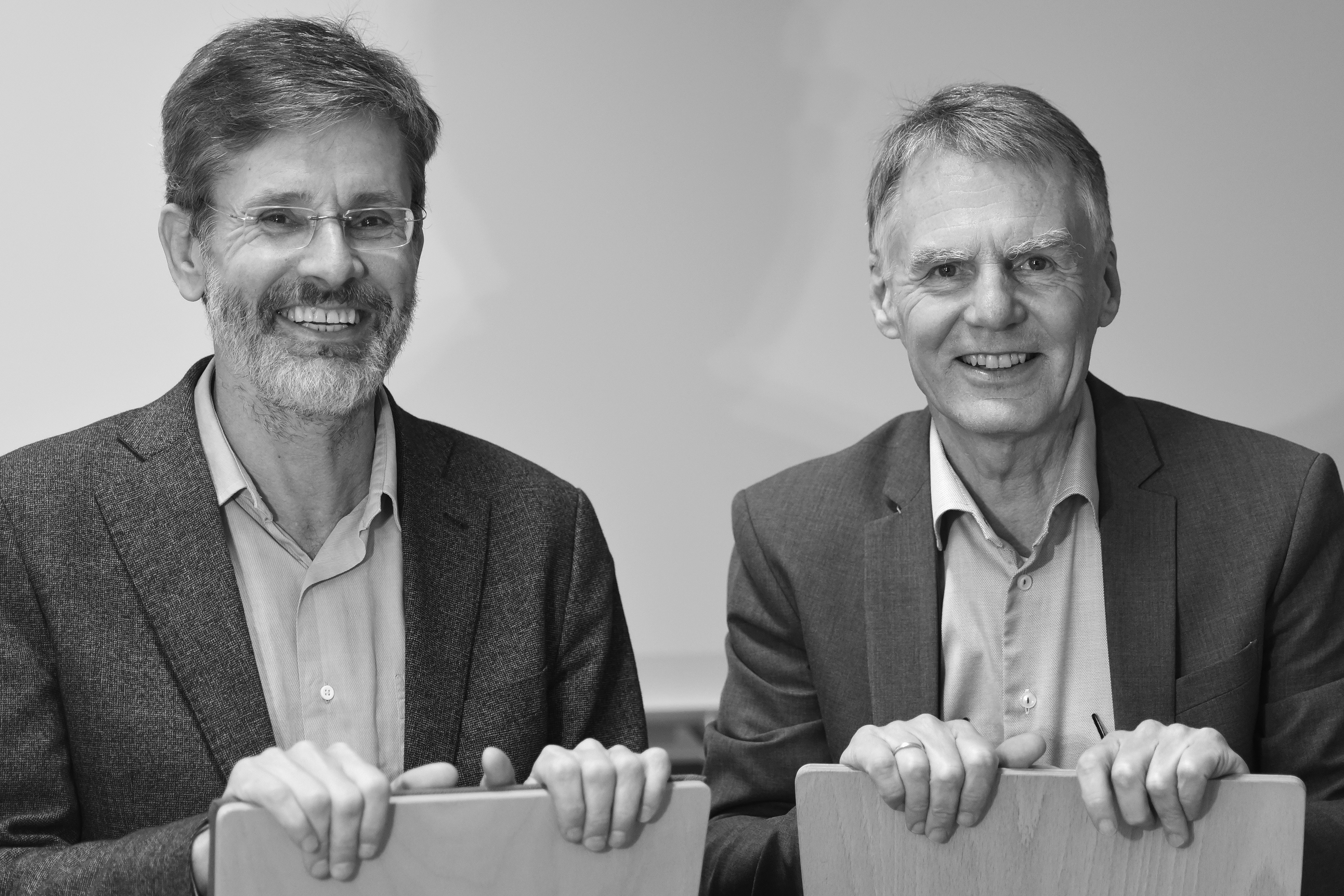Alumni Spotlight: Andreas Føllesdal and Geir Ulfstein

In their 2009/10 CAS project, the professors Andreas Føllesdal and Geir Ulfstein explored the conflict between human rights conventions and the considerations of states´ freedom, and asked: Should States Ratify Human Rights Conventions?
“To understand and assess the impact of human rights conventions is of the highest practical political importance, and also of great theoretical interest”, they wrote in the project abstract at the time, and they surely continued on that path:
In 2013, they opened a Centre of Excellence; PluriCourts — Centre for the Study of the Legitimate Roles of the Judiciary in the Global Order.
10 years, you asked: Should states ratify human rights conventions? What did you find out?
Andreas: One of the events stimulating our interest in the project was the Norwegian 'Power and Democracy' Study some years before, where the majority expressed serious misgivings against internationalization of power in general, and the increased role of international courts in particular - including most significantly the European Court of Human Rights. These international courts appeared to restrict domestic democratic decision making unduly. Among our conclusions were that while the misgivings expressed by the majority were not particularly convincing, other concerns merit much more attention. In fact, several of these human rights courts serve to strengthen democratic deliberation, and help ensure that the executive and administration actually carry out the decisions of domestic parliaments. However, the risks that the judges exercise too much unchecked discretion when they interpret and 'develop' the treaties are present, and may pose serious challenges unless there are formal and informal ways to check and guide that discretion.
How have your careers developed after the CAS year?
Both: We have had the great pleasure to continue collaborating on related topics first on a European Research Council 'Advanced Grant', and then as co-directors of a Centre of Excellence funded by the Research Council of Norway.
You focused on four conventions “with different geographical reach” in your project. What can you tell us about them?
Geir: The European Convention is the only convention with a court to supervise the implementation of the human rights obligations, i.e the European Court of Human Rights. This Court has had a profound impact on the human rights standards in Europa. The possibility for individual persons to complain to the Court means that the Court can be compared to a constitutional Court for Europa. The three other conventions, i.e. the International Covenant on Civil and Political Rights (ICCPR), the Convention on the Elimination of All Forms of Discrimination against Women (CEDAW) and the ILO Convention No. 169 concerning Indigenous and Tribal Peoples in Independent Countries do not have a Court, but supervisory organs that can render non-legally binding decisions. Nevertheless, they have been important in setting general standards and reviewing implementation by the relevant states.
What advice would you give a future group leader at CAS?
Andreas: Start early: exploit the opportunity of planning ahead for the year at CAS. We hosted workshops well in advance of that year to facilitate our exchanges and establish a common canon of literature all had read.
Enjoy the unique time: we combined workshops and solitary writing time.
Find the best people: one of the privileges of CAS is that the long horizon enables even very busy people to commit and actually show up. The well-deserved reputation of CAS, including the professional, research-supporting administrative staff, make it even easier to attract stellar colleagues for such longer-time exchanges.
Plan future career: CAS also enables you to stand back and think of further important research questions that merit your attention. And the CAS experience also serves as an indicator of your experience that may benefit future applications.
Lastly, in a human rights perspective, how do you imagine the world will look like post-Corona?
Geir: The fight against corona has shown the intricate relationship between different human rights. One the one hand, we have the right to health. But the measures taken should not violate other rights, such as freedom of movement and the right to privacy. The current situation has also shown that there are limits to how far the state can go in restricting individual rights even in times of emergency.
You may also read an interview with the two professors in our newsletter from 2013 (in Norwegian) where they elaborate on what they got out of the CAS year.
- This interview was first published in our April 2020 newsletter. Subscribe here